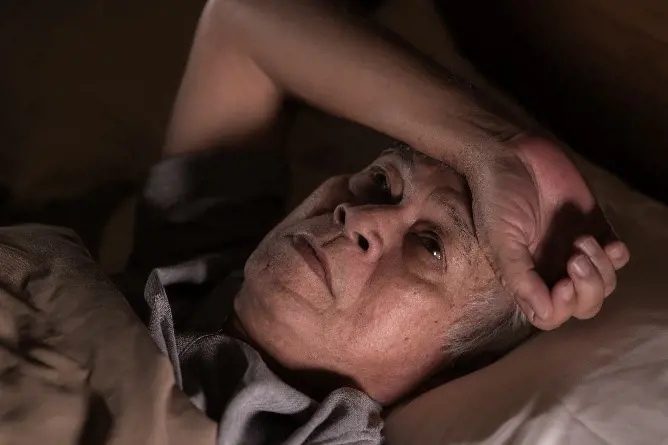This is how delirium and sleep problems are experienced
"… when I closed my eyes they (the nightmares) just appeared…." an interview study of patients of 80 year and older, and their experiences of sleep disturbances and delirium.
Published 5/11/2021
Last updated 3/17/2023

Sleep problems and delirium are complications often seen in older patients. In this article, Hege Andersen Amofah et al describe how patients 80 years and older, who have had delirium after aortic valve replacement, experienced sleep problems and delirium while they were hospitalized.
In-depth interviews of ten people of 80 years and older who had experienced delirium after surgical aortic valve surgery (SAVR) and transcutaneous aortic valve implantation (TAVI), show that they struggled to sleep in the hospital after the intervention. Four years later, they still remembered both the delirium episodes and the sleep problems.
They say the worst was falling asleep at night, mostly because of the delirium; as soon as they closed their eyes, they saw unreal things. They also had problems waking up during the night resulting in a reduced quality of sleep. Due to the delirium, they felt lonely and scared and they would like to have a hand to hold. Other conditions affecting both the sleep and delirium, was the medical equipment. In addition, they experienced physical discomfort, such as pain and dyspnoea. As they slept poorly at night, they were tired during the day, which in turn made them fall asleep during the day and thus being inactive.
Four years later, they still slept poorly, but not because of the previous delirium. Some of them have learned good techniques for sleeping.
Sleep problems and delirium need more attention among healthcare workers in order to improve both care and treatment.